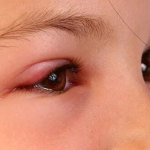Antibiotics are essential drugs used to treat infections caused by bacteria. While these medications are typically effective in treating bacterial infections, they can also have many negative side effects for those who take them. In particular, one common side effect of taking antibiotics is feeling tired. Understanding the effects of antibiotics on the body can help individuals make better decisions about when and how to take these medications.
This article will provide a comprehensive look into antibiotics’ effects on the body, particularly fatigue and exhaustion. We will also discuss “Do antibiotics make you tired”. Finally, it will offer some tips on managing and reducing the potential for feeling fatigued when taking antibiotics.
Table of Contents
Overview of the different types of antibiotics
Antibiotics are a type of medication used to treat bacterial infections.
Broad-spectrum antibiotics can target a wide variety of bacteria, while narrow-spectrum antibiotics have a narrower range and are effective against only certain types of bacteria.
1. Macrolide antibiotics such as erythromycin or azithromycin work by interfering with bacterial cell growth and metabolism.
2. Penicillins like amoxicillin are derived from microbial sources and interfere with the synthesis of bacterial cell walls.
3. Tetracycline antibiotics like doxycycline inhibit protein synthesis in bacteria, while cephalosporins like cephalexin interfere with the production of peptidoglycans which make up the bacterial cell wall.
In addition, there are other classes of antibiotics, including sulfonamides, quinolones, and aminoglycosides. Each type of antibiotic has its advantages and disadvantages, so it is important to consult with a doctor when choosing the best antibiotic for a particular infection.

Side effects related to taking antibiotics
Antibiotics can have various side effects, ranging from uncomfortable to serious. Common side effects of antibiotics include diarrhoea, nausea, vomiting, and abdominal pain. Other potential side effects may include rashes, itching, hives, and swelling of the face, lips, tongue, or throat. In some cases, serious reactions such as kidney damage, liver damage, allergic reactions, or bone marrow suppression may occur.
It is important to remember that any antibiotic has the potential for side effects and should be taken only when necessary and by a doctor’s instructions. The risks of taking antibiotics must be weighed against the benefits: depending on the infection being treated, the risks could outweigh the benefits. Therefore, it is always best to consult a healthcare professional before taking any medication.
It is also important to note that certain populations are at an increased risk for antibiotic adverse reactions. People with weakened immune systems, pregnant women, and young children may be particularly susceptible to the side effects of antibiotics. If these conditions apply, you should talk to your doctor about the right treatment options.
In general, antibiotics can effectively treat infections caused by bacteria, but they come with risks. Before beginning any course of antibiotics, it is essential to consider the potential benefits and risks. Now, we will discuss Do antibiotics make you tired?
Do antibiotics make you tired?
Antibiotics can cause tiredness in some people, but this side effect is not related to all antibiotics or everyone who takes them. Talking to your doctor about possible side effects before taking a new medication is important.
Feeling fatigued while taking antibiotics may be due to various reasons. Some antibiotics can cause an imbalance in the gut’s natural bacteria, leading to digestive issues that can damage the body’s ability to absorb nutrients properly and make a person more prone to fatigue. Additionally, certain antibiotics have direct sedative effects that can cause drowsiness and fatigue.
It is important to note that the antibiotic’s intended purpose–fighting infection—can also lead to fatigue. This fatigue occurs as the body works harder to fight off the infection, increasing energy expenditure and potentially causing tiredness. Additionally, inflammation associated with the infection can further contribute to a person’s exhaustion.
Overall, it is normal for some people to experience tiredness while taking antibiotics. However, it is important to consult your doctor immediately if you find yourself excessively exhausted or if the fatigue persists after finishing your prescribed dosage.
Possible remedies for combating fatigue associated with antibiotics
Fatigue is a common side effect of antibiotic use, as these drugs can disrupt the body’s natural systems and reduce energy levels. To combat antibiotic fatigue, getting plenty of rest, maintaining a balanced diet, and exercising regularly is important.
Additionally, some people find that supplements such as ginseng or vitamins B12, B6 and E may help enhance energy levels, although the evidence is not clear-cut. Managing stress and fatigue through relaxation techniques such as yoga, tai chi, or meditation can also be beneficial, as can avoiding caffeine and alcohol.
In severe cases, talking to your doctor about adjusting the dosage of your antibiotic or switching to a different drug may also be recommended. Ultimately, everyone reacts differently to medications; if fatigue persists after trying the approaches outlined above, it is best to consult with a healthcare professional for individualized advice.

Recommendations for reducing the risk of fatigue from antibiotics
Antibiotics are essential medications used to treat various bacterial infections but can also cause fatigue. The most common causes of fatigue from antibiotics include a decrease in red blood cells, changes in hormones, and disruption of the body’s microbial balance. Fortunately, there are several recommendations that individuals can follow to reduce the risk of fatigue associated with antibiotic use.
- Firstly, individuals should only take antibiotics when necessary, as over-prescription can lead to drug resistance.
- Secondly, individuals should ensure that their dose is appropriate for the severity of the infection and complete the entire prescription even if symptoms subside before finishing the course of therapy.
- Thirdly, individuals should replenish their body’s microbiome by consuming probiotics, yogurt, or fermented foods during and after antibiotics.
- Finally, individuals should ensure adequate rest, engage in physical activity, and drink plenty of fluids while taking antibiotics to help prevent dehydration and fatigue.
By following these recommendations, individuals can reduce the risk of developing fatigue while using antibiotics. Although antibiotics are essential to many treatment plans, it’s important to be aware of their potential side effects and take proactive steps to minimize those risks.
Do Antibiotics Make You Tired: Final words
Do antibiotics make you tired? Generally speaking, antibiotics are not known to cause significant levels of fatigue or exhaustion.
However, the body may react differently to different antibiotics, and some people may experience excessive tiredness as a side effect.
If you notice any unusual signs of fatigue while taking antibiotics, consult with your doctor to discuss your symptoms and if necessary, change your medication.







